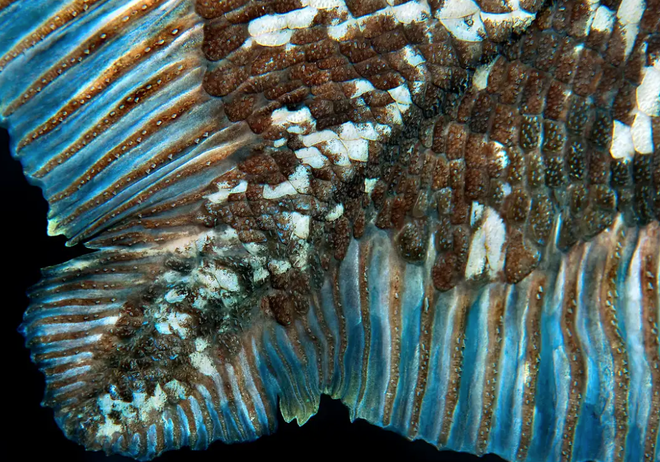Coelacanths, once thought to be extinct, have a lifespan of over 100 years and do not actually reach maturity until around 50 years.
A team of French researchers has discovered that the coelacanth can live for a century. In addition, the life cycle of this fish seems to be lengthened: an individual takes many years in the neonatal stage in the womb and at least 45 years to reach full maturity.
Some previous estimates have suggested that the coelacanth is an extremely fast growing and reproducing fish with a lifespan of only 20 years. However, some recent sightings of coelacanths in the wild have raised the question of their much longer lifespans. The new study, published in the journal Current Biology, estimates a lifespan of 100 years, based on testing balances under polarized light.
This fish was first known from fossils and is believed to have been extinct since the Cretaceous Period (66 million years ago). But when a fisherman in South Africa pulled his net and obtained a live fish in 1983, it shocked the scientific community. The turquoise and blue scales are reminiscent of Colonel Courtenay-Latimer, museum curator, who identified this individual as a coelacanth. It is this layer of fins that helped scientists discover the true lifespan of this species, in an independent study conducted in the midst of a pandemic.
“Some independent, unfunded and above all fun research is proving to be very informative. He’s one of them. “- Bruno Ernande, study author and evolutionary researcher at the University of Montpellier in France.
The coelacanth scales develop in a circular fashion each year of the coelacanth’s age. The width of these rings is an indication of the growth rate of the fish. Due to the difficulty of traveling between COVIDs, the scientists received samples of flakes by mail from numerous scientific institutes in France and Germany, then analyzed them under a microscope and in polarized light, allowing the layers to be observed to grow. in a ring.
The discovery shows that the maximum lifespan of the coelacanth is five times longer than previously known – about a century. The surprising thing is not only in the coelacanth’s age range, the team also found that the coelacanth remains in the womb for around 5 years – much longer than the gestation period of mammals (the elephant Indian holds the record). ). Obviously, coelacanths not only take longer to mature, but are also experts at “living slowly” from the inside out.
In the millions of years of evolution since the days when the species was thought to be extinct, the coelacanth has developed many genetic traits. The large scales on the sides of the gills are an indication of this development. Although this trait is very similar to lung fish, genetic analysis shows that coelacanths are closely related to tetrapods, whose vertebrates include mammals, reptiles, birds, and amphibians. . With a lifespan of up to a century, the coelacanth deserves to be classified as the highest class of long-lived fish, competing with sharks.
Examining more than 30 specimens, the oldest being 84 years old, the team concluded that the coelacanth reached adulthood at around age 50. This age was determined on the basis of previous studies on body length and body differences between juvenile and adult age. At this age, people have started to have gray hair and need glasses.
“Animals with short reproductive lifetimes are often better able to cope with the pressures of survival in an increasingly human-dominated world. Long-lived, poorly reproducing species such as elephants and blue whales are more threatened by humans. According to this rule, the coelacanth is on the verge of extinction and is likely to become extinct altogether. – Callum Roberts, an aquatic biologist at the University of Exerter said.



